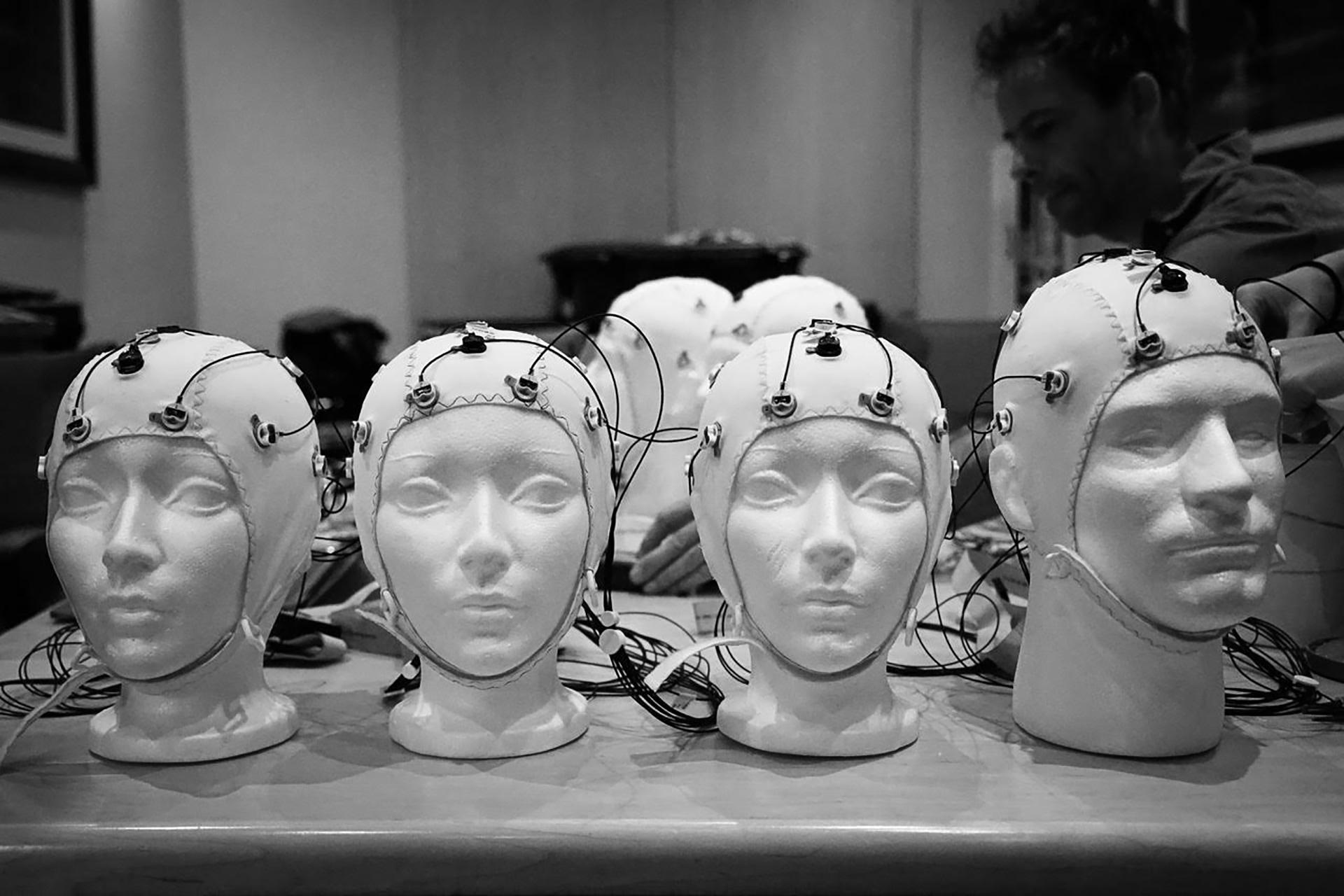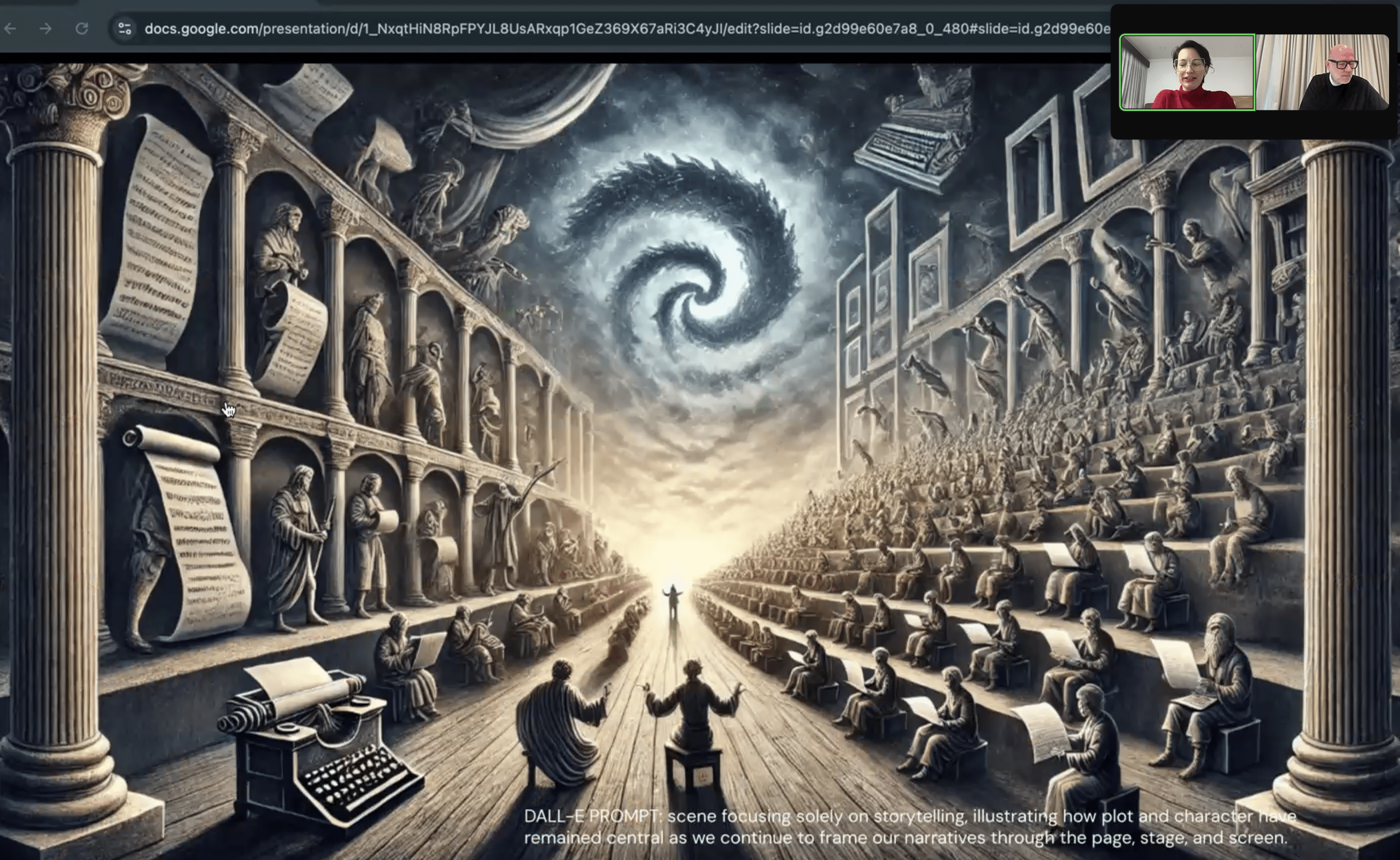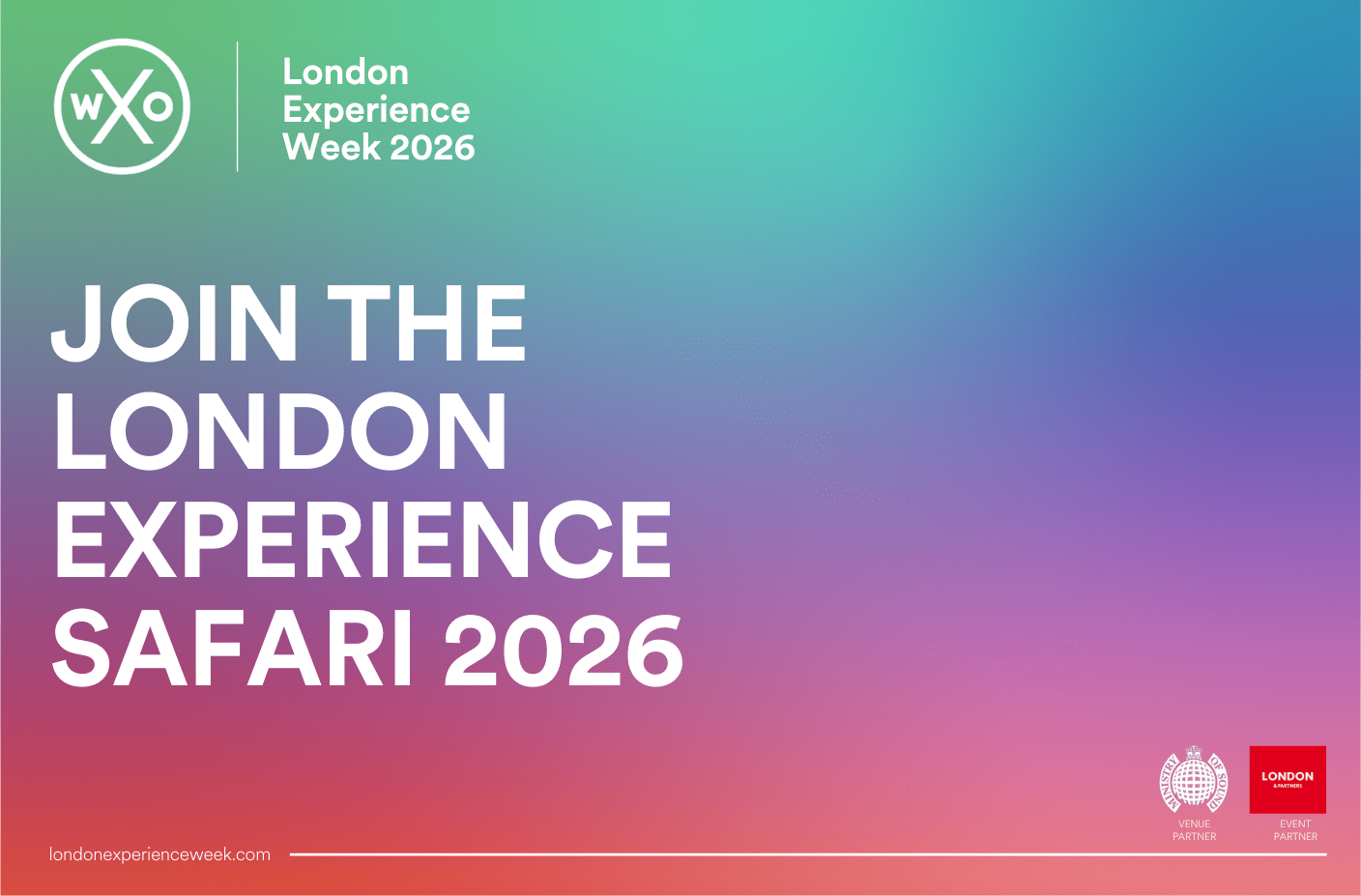How do you measure the success of your experience – both through traditional measures like NPS, financial gain, and customer surveys, and newer forms like psychological immersion, the Money Value of Time, and transformation? And how can we use all this information to prove the value of what we do – to customers, to clients, and to ourselves?
This guide, part of our World Experience Glossary, gives an overview of how to measure your experiences. Links to relevant think pieces, WXO Campfire reports and experience case studies on the topic of measuring experiences are coming soon!
Understanding how to measure experiences is essential for anyone aiming to achieve success, be it in business, personal development, or customer relations. Customer experience metrics and the customer journey are crucial for understanding and improving these experiences. The ability to quantify and evaluate experiences allows us to make informed decisions, improve satisfaction, and ensure lasting impact. This guide will delve into the various aspects of measuring experiences, from determining what to measure and how to gauge return on experience, to assessing customer satisfaction beyond traditional metrics like NPS. Additionally, we will explore methods to measure sustainability and impact, alongside discussing effective experience design frameworks. Prepare to gain a comprehensive understanding that is both practical and relatable.
What to Measure in Experiences
Key Performance Indicators
Key Performance Indicators (KPIs) are vital when measuring experiences. They provide quantifiable metrics that reflect the success or failure of an experience. Common KPIs include key metrics such as Net Promoter Score (NPS), Customer Satisfaction Score (CSAT), and Customer Effort Score (CES), as well as repeat engagement rates and conversion rates. Customer satisfaction scores (CSAT) can be derived from surveys or feedback forms and are used to gauge user satisfaction at different stages of the customer journey, while repeat engagement rates track how often customers return. Conversion rates measure the percentage of users who complete a desired action, such as making a purchase or signing up for a newsletter. By monitoring these KPIs, you can identify areas needing improvement and measure the impact of changes. Additionally, tracking KPIs over time helps you understand trends and patterns, enabling more strategic decisions. Thus, KPIs are an indispensable tool for anyone looking to measure experiences effectively.
Customer Sentiment Analysis
Customer sentiment analysis involves gauging the emotions and opinions of your customers through their interactions and feedback. Customer service metrics like Customer Satisfaction Score (CSAT) and First Response Time (FRT) are used to gauge customer satisfaction and the efficiency of customer support teams. This can be accomplished by analysing reviews, social media posts, and survey responses. Sentiment analysis tools use natural language processing to categorise feedback as positive, negative, or neutral. Understanding customer sentiment helps identify underlying issues that may not be evident through traditional metrics. For instance, a product might have high sales, but a sentiment analysis could reveal recurring complaints about its usability. By addressing these concerns, you can improve the overall customer experience. Moreover, tracking sentiment over time allows you to see how changes in your business affect customer perceptions, providing a more nuanced view of your performance. This makes customer sentiment analysis a crucial component in measuring experiences.
Engagement Metrics
Engagement metrics are essential for understanding how users interact with your products or services. Utilizing customer journey analytics helps analyze interactions, behaviors, and preferences at each stage of the customer journey. These metrics include page views, session duration, and interaction rates. Page views measure the number of times a page is accessed, while session duration indicates the length of time a user spends on your site. Interaction rates capture activities like clicks, shares, and comments. High engagement metrics usually signify that users find your content valuable and are more likely to convert. Tracking these metrics helps identify what content or features resonate most with your audience, allowing you to optimise your offerings. Moreover, engagement metrics can reveal behavioural patterns, such as peak times for user activity, which can inform your marketing strategies. Therefore, monitoring engagement metrics provides a comprehensive view of user behaviour and is crucial for measuring experiences effectively.
How to Measure Return on Experience
Financial Metrics
Financial metrics are crucial for measuring the return on experience (RoE). These metrics include revenue growth, profit margins, and customer lifetime value (CLV). Revenue growth measures the increase in sales over a specific period, indicating the financial impact of your experience initiatives. Profit margins reveal the profitability of your efforts by comparing revenues to costs. Customer lifetime value estimates the total revenue a customer will generate over their relationship with your business, providing a long-term view of RoE. Tracking these metrics helps you evaluate the financial effectiveness of your strategies. For example, if a new customer engagement initiative leads to higher CLV, it indicates a positive RoE. Additionally, financial metrics can highlight areas where costs can be reduced without compromising experience quality. Thus, financial metrics are indispensable for understanding the economic benefits of your experience-related efforts.
Customer Lifetime Value
Customer Lifetime Value (CLV) is a critical metric for measuring return on experience. CLV estimates the total revenue a customer will generate throughout their relationship with your business. This metric provides a long-term perspective on the financial impact of customer experiences. To calculate CLV, multiply the average purchase value by the number of purchases per year and the average customer lifespan. By understanding CLV, you can assess the effectiveness of your experience strategies in fostering customer loyalty and long-term engagement. For instance, a high CLV indicates that your initiatives are successfully retaining customers and encouraging repeat business. Moreover, focusing on CLV helps prioritise investments in customer experience improvements that yield the highest returns. Tracking CLV over time also allows you to identify trends and adjust your strategies accordingly. Therefore, CLV is indispensable for measuring the financial benefits of your experience efforts.
Brand Loyalty Indicators
Brand loyalty indicators are essential for measuring return on experience. These indicators include repeat purchase rates, customer retention rates, and referral rates. Repeat purchase rates measure how often customers return to buy again, highlighting the success of your experience initiatives. Customer retention rates indicate the percentage of customers who continue to engage with your brand over time. Referral rates track how often customers recommend your brand to others, reflecting their satisfaction and loyalty. Monitoring these indicators helps you understand the effectiveness of your strategies in building strong, lasting relationships with your customers. High brand loyalty indicators suggest that your efforts are resonating well, leading to increased customer trust and advocacy. Additionally, tracking these indicators over time provides insights into trends and areas for improvement. Therefore, brand loyalty indicators are crucial for evaluating the long-term impact of your experience initiatives.
How to Measure Customer Satisfaction Beyond NPS
Qualitative Feedback
Qualitative feedback is invaluable for measuring customer satisfaction beyond the Net Promoter Score (NPS). This type of feedback includes detailed responses from customers through surveys, interviews, and open-ended questionnaires. Unlike quantitative metrics, qualitative feedback provides rich, nuanced insights into customer experiences and perceptions. For example, while an NPS score may indicate general satisfaction levels, qualitative feedback can pinpoint specific aspects of your product or service that customers love or dislike. Analysing this feedback helps identify recurring themes and issues that may not be evident through numerical scores alone. Additionally, qualitative feedback allows customers to express their thoughts in their own words, offering a deeper understanding of their needs and expectations. By actively seeking and analysing qualitative feedback, you can make more informed decisions to enhance the overall customer experience. Therefore, qualitative feedback is an essential component for a comprehensive assessment of customer satisfaction.
Customer Effort Score
The Customer Effort Score (CES) is a crucial metric for measuring customer satisfaction beyond the Net Promoter Score (NPS). CES gauges how easy it is for customers to interact with your business, such as resolving issues or making purchases. Customers typically respond to statements like “The company made it easy for me to handle my issue” on a scale from “Strongly Agree” to “Strongly Disagree.” A low effort score indicates that customers find it easy to get what they need, which often correlates with higher satisfaction and loyalty. Conversely, a high effort score suggests friction points that need addressing. Tracking CES helps identify areas for improvement, enabling you to streamline processes and enhance the overall customer experience. By focusing on reducing customer effort, you can foster a more positive relationship with your audience. Therefore, CES is an indispensable tool for a comprehensive view of customer satisfaction.
Post-Purchase Surveys
Post-purchase surveys are an effective method for measuring customer satisfaction beyond the Net Promoter Score (NPS). These surveys capture immediate feedback from customers after a purchase or interaction, providing timely insights into their experiences. Questions in post-purchase surveys often focus on the ease of the buying process, product satisfaction, and the likelihood of future purchases. By collecting this data shortly after the transaction, you can address any issues quickly and ensure a positive customer experience. Additionally, post-purchase surveys help identify trends and patterns in customer behaviour, enabling you to make data-driven improvements. For instance, if multiple customers report difficulties with the checkout process, you can prioritise enhancements in that area. Regularly conducting post-purchase surveys demonstrates your commitment to customer satisfaction and helps build trust. Therefore, post-purchase surveys are a valuable tool for gaining a comprehensive understanding of customer satisfaction.
How to Measure Sustainability and Impact
Environmental Metrics
Environmental metrics are essential for measuring sustainability and impact. These metrics include carbon footprint, energy consumption, and waste reduction. The carbon footprint measures the total greenhouse gases produced directly or indirectly by your business activities. Tracking energy consumption helps identify areas where energy efficiency can be improved, reducing overall environmental impact. Waste reduction metrics assess the amount of waste generated and the effectiveness of recycling and waste management initiatives. Monitoring these environmental metrics allows you to gauge the ecological impact of your operations and make informed decisions to minimise harm. Additionally, demonstrating a commitment to sustainability can enhance your brand reputation and appeal to environmentally conscious consumers. By systematically tracking and reporting these metrics, you can set tangible goals for improvement and contribute positively to global sustainability efforts. Therefore, environmental metrics are crucial for assessing and enhancing your business’s sustainability and impact.
Social Impact Assessments
Social impact assessments are vital for measuring the broader effects of your business on communities and stakeholders. These assessments evaluate factors such as job creation, community engagement, and contributions to social causes. Job creation metrics measure the number and quality of jobs your business generates, while community engagement metrics track initiatives that foster local development and well-being. Contributions to social causes, such as donations and volunteer work, highlight your commitment to societal welfare. Conducting social impact assessments allows you to understand and enhance the positive effects your business has on society. By regularly evaluating these metrics, you can identify areas for improvement and ensure that your efforts align with your social responsibility goals. Additionally, demonstrating a strong social impact can enhance your brand reputation and attract socially conscious customers. Therefore, social impact assessments are crucial for a comprehensive understanding of your business’s sustainability and societal impact.
Long-Term Benefits
Measuring long-term benefits is essential for understanding the sustainability and impact of your initiatives. Long-term benefits include enhanced brand loyalty, reduced operational costs, and improved stakeholder relationships. Sustainable practices, such as energy efficiency and waste reduction, often lead to cost savings over time. Additionally, demonstrating a commitment to sustainability can strengthen your brand image, fostering customer loyalty and attracting new clients who value environmental responsibility. Furthermore, long-term benefits extend to improved relationships with stakeholders, including employees, investors, and the community. By prioritising sustainable practices, you create a positive work environment, boost employee morale, and gain investor confidence. Regularly evaluating long-term benefits ensures that your sustainability efforts are aligned with your strategic goals and provide lasting value. Therefore, focusing on long-term benefits is crucial for a comprehensive understanding of the impact and sustainability of your business practices.
Experience Design Frameworks to Measure
User Journey Mapping
User journey mapping is a crucial tool in experience design frameworks, helping to understand and improve the customer journey. It involves visualising the steps a user takes from initial contact to the final interaction with your product or service. This map highlights key touchpoints, emotions, and potential pain points throughout the user experience. By creating a user journey map, you can gain a holistic understanding of the user’s perspective, identifying areas that require improvement. For example, if users consistently drop off at a particular stage, this indicates a friction point that needs addressing. Additionally, user journey mapping helps in empathising with customers, allowing you to design more intuitive and satisfying experiences. It also aids in aligning your team’s efforts by providing a clear, visual representation of the user’s path. Therefore, user journey mapping is an invaluable component for effectively measuring and enhancing user experiences.
Service Blueprinting
Service blueprinting is a powerful framework for measuring and improving experiences. It involves creating a detailed diagram that outlines the service process, key touchpoints, and interactions between customers and service providers. The blueprint typically includes both front-stage activities (visible to the customer) and back-stage activities (behind the scenes). By mapping out these elements, you can identify inefficiencies and areas for improvement in the service delivery process. For instance, if a particular back-stage activity frequently causes delays, you can take targeted actions to streamline it. Service blueprinting also helps in understanding the roles and responsibilities of different team members, ensuring better coordination and communication. Additionally, it provides a clear visual representation of how different components of the service interact, making it easier to spot potential pain points. Therefore, service blueprinting is essential for a comprehensive understanding and enhancement of user experiences.
Experience Prototyping
Experience prototyping is an essential method within experience design frameworks. It involves creating tangible representations of a service or product to test and refine user interactions and overall experience. This can range from simple sketches and mock-ups to detailed, interactive prototypes. The goal is to simulate the user experience as closely as possible, allowing you to identify issues and gather feedback before full-scale implementation. Experience prototyping helps in understanding how users will interact with your product or service in real-world scenarios. By iterating on prototypes, you can refine features, improve usability, and ensure the experience aligns with user expectations. Additionally, involving stakeholders in the prototyping process fosters collaboration and ensures that everyone has a clear understanding of the intended experience. Therefore, experience prototyping is a crucial step for validating and enhancing the user experience, ultimately leading to a more successful and user-centred product or service.





